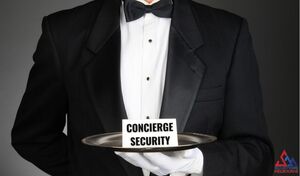More from Security Hire Melbourne
More in Politics
Related Blogs
Archives
Social Share
Addressing Emergencies: Crisis Management and Concierge Security Preparedness
Body
In today's rapidly changing world, businesses and residential communities face various security challenges. From natural disasters to criminal activities, emergencies can strike unexpectedly, posing significant threats to the safety and well-being of individuals and properties. In such situations, the importance of crisis management and concierge security preparedness becomes paramount.
Concierge security Melbourne is a specialized form of security service that goes beyond the traditional role of security guards. In addition to maintaining a safe environment, concierge security personnel also take on a customer service role, assisting and guiding visitors, residents, and employees. This unique blend of security and hospitality demands a well-thought-out crisis management strategy to effectively handle emergencies.
Understanding Crisis Management in Concierge Security
Crisis management refers to the process of identifying, preparing for, responding to, and recovering from emergency situations. In the context of concierge security, crisis management encompasses a series of proactive and reactive measures designed to protect people and assets during a crisis while minimizing potential damages and disruptions.
-
Risk Assessment and Prevention: The foundation of effective crisis management lies in conducting comprehensive risk assessments. Understanding the potential risks that a business or community may face enables security providers to implement proactive measures to prevent or mitigate those risks. These assessments consider factors such as the location, nature of the property, previous incidents, and external threats to create a tailored security plan.
-
Emergency Response Plans: Concierge security providers must develop detailed emergency response plans for various scenarios. These plans outline the roles and responsibilities of security personnel, establish communication protocols, and specify evacuation procedures. The plans should be regularly reviewed and updated to stay relevant and effective in changing circumstances.
-
Training and Education: Properly trained security personnel are essential for effective crisis management. Training should cover a wide range of topics, including recognizing potential threats, handling emergencies calmly, using communication devices effectively, administering first aid, and coordinating with emergency responders. Regular drills and simulations help reinforce these skills and build confidence in the team.
-
Effective Communication: During emergencies, clear and timely communication is critical. Concierge security personnel must have reliable communication tools to coordinate with each other, management, and emergency services. This includes two-way radios, mobile phones, and, if applicable, emergency notification systems for residents or employees.
-
Collaborating with Emergency Responders: Concierge security teams should establish strong relationships with local emergency responders, such as law enforcement, fire departments, and medical services. In times of crisis, collaboration and seamless communication with these agencies are vital for a swift and effective response.
-
Crowd Management: In certain emergencies, such as fire evacuations or natural disasters, crowd management becomes crucial. Concierge security personnel should be trained to guide and direct people safely towards designated assembly areas, avoiding panic and chaos.
-
Continuity Planning: Concierge security providers must also plan for business continuity during and after a crisis. This involves identifying essential services and operations, implementing backup systems, and having contingency plans to ensure the smooth functioning of critical processes despite disruptions.
-
Post-Crisis Evaluation and Learning: After any emergency, a thorough evaluation of the crisis management response is essential. Analyzing what worked well and identifying areas for improvement helps refine the crisis management strategy for future incidents. The learning from each experience strengthens the security team's preparedness and adaptability.
The Importance of Concierge Security Preparedness
-
Rapid Response to Emergencies: In high-stress situations, quick and effective response times can make a significant difference. Concierge security personnel, well-versed in crisis management, can act promptly, implementing the appropriate protocols to minimize risks and protect people and property.
-
Ensuring Safety and Security: The primary objective of concierge security is to provide a safe and secure environment for customers, residents, and employees. By being prepared for emergencies, security personnel instill confidence and trust among the people they serve, enhancing overall safety levels.
-
Minimizing Losses and Damages: An efficient crisis management plan aims to reduce potential losses and damages. Through proactive measures and quick reactions, concierge security can mitigate the impact of emergencies, safeguarding valuable assets and properties.
-
Reputation Management: How a business or residential community handles crises can significantly impact its reputation. A well-prepared concierge security team can manage emergencies professionally, demonstrating a commitment to safety and customer well-being.
-
Building Resilience: Preparedness and crisis management foster resilience, allowing businesses and communities to bounce back more quickly after an emergency. Having a robust plan in place can help expedite the recovery process.
-
Legal and Regulatory Compliance: Certain industries and jurisdictions have specific requirements for emergency preparedness. Concierge security providers that meet these standards ensure compliance with applicable laws and regulations.
Conclusion:
Crisis management and concierge security Melbourne preparedness go hand in hand in safeguarding businesses and residential communities. By conducting thorough risk assessments, developing comprehensive emergency response plans, and providing continuous training, concierge security personnel are well-equipped to handle various crises. Their ability to respond swiftly and efficiently not only protects people and assets but also reinforces trust and confidence in the services they provide. In an uncertain world, prioritizing crisis management is a proactive and responsible approach to security, ensuring a safer and more secure environment for everyone.













Comments